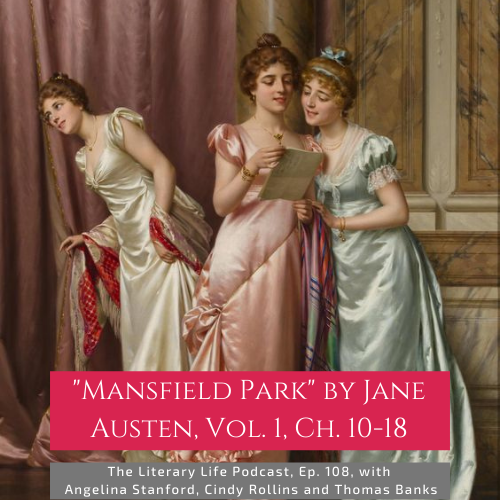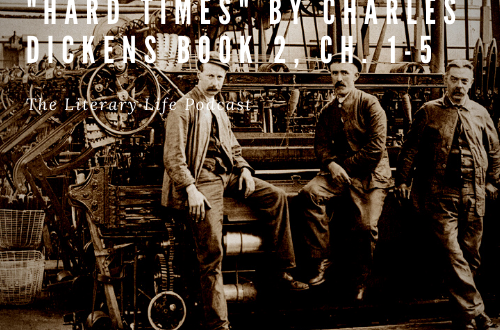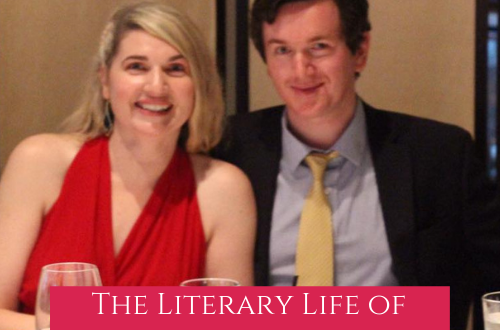
Episode 108: “Mansfield Park” by Jane Austen, Vol. 1, Ch. 10-18
Today on The Literary Life, we continue our conversation on Jane Austen’s Mansfield Park. Angelina, Cindy and Thomas share their commonplace quotes, then dive into the book chat, beginning with some commentary on Fanny’s education in contrast to that of the Bertram sisters. They also talk about the concepts of restraint, temptation, and boundaries and how we see these ideas play out in the various characters. Angelina points out how Fanny is the fixed moral center throughout this whole section. She also talks about the play within the novel and how Austen’s use of this form reflects Shakespeare. We hope that the discussion opens up new levels of understanding for you as you read this novel along with us!
To view the schedule for the episodes in this series, see our Upcoming Events page. Also, if you want to join our members-only forum off Facebook, check out our Patreon page to learn more!
Listen to The Literary Life:
Commonplace Quotes:
I entirely agree that it’s no good trying to coerce or argue artists into giving what they haven’t got. Either they burst into tears, or go sullen, or–if they are hearty extraverts–they cheerfully turn out fifteen new versions, each worse than the last. Actors too. They’re the most kittle cattle of the lot.
Dorothy Sayers, in a letter to C. S. Lewis
While affording some secrets of the way of the will to young people, we should perhaps beware of presenting the ideas of self-knowledge, self-reverence, and self-control. All adequate education must be outward bound, and the mind which is concentrated on self-emolument, even though it be the emolument of all the virtues, misses the higher and the simpler secrets of life. Duty and service are the sufficient motives for the arduous training of the will that the child goes through with little consciousness.
Charlotte Mason
She is almost a Jane Austen heroine condemned to a Charlotte Brontë situation. We do not even believe in what Jane Austen tells us of her good looks; whenever we are looking at the action through Fanny’s eyes, we feel ourselves sharing the consciousness of a plain woman.
C. S. Lewis, “A Note on Jane Austen”
Sonnet 23
by William Shakespeare
As an unperfect actor on the stage
Who with his fear is put beside his part,
Or some fierce thing replete with too much rage,
Whose strength’s abundance weakens his own heart;
So I for fear of trust forget to say
The perfect ceremony of love’s rite,
And in mine own love’s strength seem to decay,
O’ercharged with burden of mine own love’s might.
O, let my books be then the eloquence
And dumb presagers of my speaking breast,
Who plead for love and look for recompense
More than that tongue that more hath more expressed.
O, learn to read what silent love hath writ.
To hear with eyes belongs to love’s fine wit.
Book List:
Towards a Philosophy of Education by Charlotte Mason
Support The Literary Life:
Become a patron of The Literary Life podcast as part of the “Friends and Fellows Community” on Patreon, and get some amazing bonus content! Thanks for your support!
Connect with Us:
You can find Angelina and Thomas at HouseofHumaneLetters.com, on Instagram @angelinastanford, and on Facebook at https://www.facebook.com/ANGStanford/
Find Cindy at morningtimeformoms.com, on Instagram @cindyordoamoris and on Facebook at https://www.facebook.com/cindyrollins.net/. Check out Cindy’s own Patreon page also!
Follow The Literary Life on Instagram, and jump into our private Facebook group, The Literary Life Discussion Group, and let’s get the book talk going! http://bit.ly/literarylifeFB
Subscribe to The Lit Life:









2 Comments
Bekka
Do you think the focus on geography in their education is emphasized because the novel is about a place?
Lisa G.
This is so interesting! Although everyone seems to see Fanny as two-dimensional and boring, I have always seen her as a “good Catholic girl”. The hidden life of virtue isn’t showy, or pointing to the self. Very interesting!! Thank you!